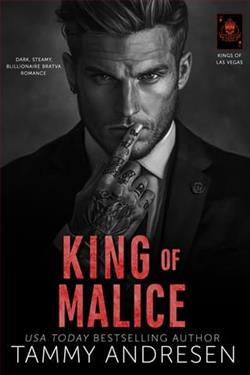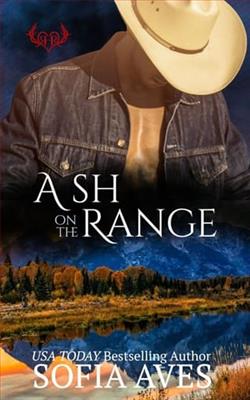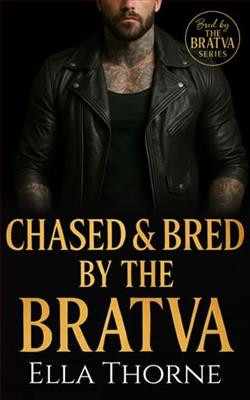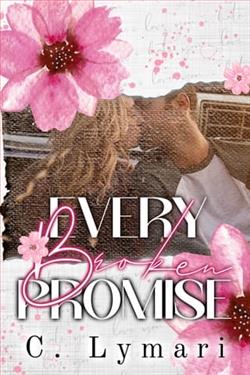Page 5 of The Road to Avalon
He finished the roll and wiped his milky mouth on his sleeve. “That would spoil all the fun– Iwantedto get drunk. To live. To do what I want with no one to stop me.” He laughed. “And I want to do it every night we’re here. In fact, after last night, I’m not sure I want to come home.”
Inside, I quailed at the thought of what his father might say to that, but I stayed silent. Best if one of us had a decent relationship with our son, and he was heading for twenty and still wet behind the ears in most senses. Heneededthis more than Arthur would ever understand.
Amhar picked up a dried fig. “And you’ll never guess who I met. In one of the first taverns I went into. I spent the entire night with him and his friends. He knows all the best places to go. The best taverns, the best gaming dens, the best of everything.” He raised his eyes expectantly, wanting me to guess, as he chewed on the fig.
A little voice inside my head whispered caution. “I can’t guess,” I said. “You’ll have to tell me.”
He beamed in delight. “Medraut, of course. He’s here with King Clinoch of Alt Clut and his party, for the Council. He was with Clinoch’s youngest son, Cinbelin. They’re great friends, and now I’m friends with them as well, and with all their group. Great fellows to spend the night with enjoying what the city has to offer.”
My stomach lurched. Not Medraut. Not after all this time. I had to fight to control my expression. As a boy desperate to be a man, he’d left Din Cadan seven years ago to further his career as a warrior and had not been back since. If I had to admit it, I’d secretly been hoping he’d met some unspecified and faraway fate and that we’d never have to see him again.
But here he was, still going strong, and in what seemed to be a position of influence over a prince from a distant court. The bad penny that keeps on turning up even after you throw it away with all your strength.
Arthur had dispatched him to help with the refortification of Dinas Brent, one of our small coastal forts, but he’d remained there only three years. His commander, Morfran of Linnuis, had been forced to send him packing to join his mother, Morgawse, in the port of Caer Legeion.
I’d found it difficult winkling the reason for this out of Arthur, but I’d managed it in the end. As a lusty fifteen-year-old, and with all the major work on rebuilding the fortress completed, Medraut had taken to visiting the village and farms that clustered around the foot of Dinas Brent’s high hill. He’d not been the only one, of course, but hehadbeen the only one to bring trouble to the gates of the fortress.
“It’s only to be expected he’d want a bit of female company,” Arthur said, for some reason inclined to excuse his behavior. “Boys need to become men in more than one way.” Funny that he didn’t seem to think the same thing about his own son, now.
I held my tongue at that, convinced the sort of man Medraut wanted to become was not the sort I’d like.
The problem was that he hadn’t just gone to the tavern, where he and his friends could meet up with women who were willing to lie with a young warrior for a few drinks. No, he cast his net wider, and it snared the pretty young daughter of the village baker, so successfully that she fell pregnant.
“It happens,” Arthur said, with a wry smile, as he recounted the story. “How d’you think I got Llacheu? I wasn’t much older than Medraut, you know.”
When she couldn’t hide her growing belly any longer, the girl’s irate father and brother came storming up the hill demanding Medraut should make an honest woman of her. She was a girl expected to make a good marriage to a man of similar standing to her father. He thought he’d snared a warrior for her.
Medraut didn’t kill them, but it was a near thing. They’d had to be carried back down the hill on boards. The girl miscarried her child, possibly from shock, and she and the baby died.
Arthur’s source of information about all this was a rambling message from Morfran, explaining why he’d had to send Medraut off to his mother in Caer Legeion, and asking Arthur’s belated consent. As the villagers were up in arms to the point of wanting to send a lynching party up the hill and not caring which warrior they caught, Arthur sent them a flock of sheep in payment for their loss, which Morfran informed us had served to mollify their hurt feelings.
But that was four years ago now, and we’d had no news of Medraut since. In my baser moments, I’d indulged in hoping he’d either gone to sea with his father and drowned, or set off to seek his fortune in Gaul or beyond.
And now here he was, back again.
“Medraut?” I managed, my breath catching in my throat and making me hoarse. “He’s here? In Viroconium?”
Amhar nodded, ladling the honey into his mouth with the spoon. “Mmmmm. This is the best sort of honey.” His tongue darted out to lick his sticky lips. “I said so, didn’t I? He’s been here a good few days already. The house he’s staying in isn’t too far from here.” He dipped the spoon in the honey again. “I’ll have to go to the kitchens, I think. I wonder if they have bacon. I could eat a whole flitch.”
He stood, brushing the last crumbs of bread from a tunic front bespattered with wine stains. “I’ll talk to you later, Mother. When I’ve caught up with some sleep.”
I watched him walk away across the paved courtyard, my mind in a turmoil. In the nearly twenty years I’d been living as Arthur’s queen, the knowledge I had from my old life had never stopped burning a hole in my heart. I’d counted through the twelve major battles the ninth century monk, Nennius, had attributed to Arthur in hisHistoria Brittonum, and every one of them had turned out to be based on fact. Something Arthurian scholars would have been amazed to hear.
Seven years ago, on the Wiltshire Downs, I’d watched the final one, Badon, unfold. A rousing victory for the British, with Arthur supported by two unlikely allies: Cerdic of Caer Guinntguic and Cadwy of Powys. Both kings with Saxon blood in their veins, and both men Arthur had good reason to hate. But they’d rallied to the cause of saving Britain, and it had worked. The Saxon leaders, Aelle and Octha, had agreed to a treaty limiting their settlement to the east, and peace had reigned since then. Only minor, still-to-be-expected disputes, and a few small incursions in the west from the Irish, had marred the tranquility of Britain.
But none of that had made the looming threat of Arthur’s last battle any less frightening. Camlann, a battle over whose location many later academics would wrangle. A battle mentioned here and there in places like the Black Book of Carmarthen, the Welsh Annals and Geoffrey of Monmouth’s pseudo history of Britain. If Nennius’s twelve were real, surely Camlann must be as well? And if that were so, then Medraut seemed destined to lead the opposing side. Not of raiding Saxons or Irish, but of men of Britain, in a revolt against their own High King.
I swallowed my fears, no longer hungry.
Chapter Three
Arthur didn’t returnto the Domus Alba until nightfall, and with him he brought Medraut and a stocky, red-headed teenager with galloping acne and a face like a potato. Cinbelin, youngest son of King Clinoch of Alt Clut, that godforsaken kingdom lying northwest of the Wall, once ruled by King Caw.
After defeating Caw and storming his nearly impregnable stronghold at Dun Breattann, with an air for the dramatic, Arthur had bowled the rather-the-worse-for-wear head of his son Heuil to him across his flag-stoned hall. To ensure a lasting peace, he’d taken Caw’s youngest and favorite son hostage. Gildas, now a monk at the abbey on Ynys Witrin, showed no desire to return to the unforgiving north of Britain. And with his father dead, nothing now existed to draw him back.
Merlin and I were sitting by the fountain, as the shadows of evening crept across the courtyard and delicious smells wafted from the kitchen. Amhar had not yet shown his nose outside his bedroom, so last night must have taken a lot of sleeping off. Medraut and Cinbelin had gone on to the dining room, and Merlin and I were waiting while Arthur changed his tunic.
“You’ll have to explain how Cinbelin’s father came to be king in words of one syllable, in case I put my foot in it at dinner,” I said to my friend, as he sat trailing the fingers of one lean hand in the cool water. He’d dressed splendidly for dinner in a deep-red tunic, and his long hair hung in a braid down his back. I flicked water at the fish, and they darted away. “When I last saw him, Caw had so many sons I’d like to know why one of them didn’t inherit the throne. What happened to them all?”















